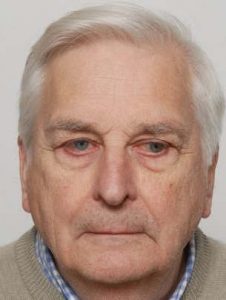Forget Bahkmut and FI6s, this is crucial for Russia in its diplomatic war against the US and NATO in Ukraine. With Erdogan returned to power for another five years, Russia’s Black Sea coast line will be secure against NATO threats as long as the war lasts.

By Robert Harneis
Erdogan may make life difficult for Vladimir Putin but he is a known quantity, and even more of a problem for the West. His opponent is much more likely to favour Washington, NATO and the EU.
On May 22 the third candidate in Turkey’s presidential elections, the nationalist anti immigrant Sinan Ogan, endorsed the incumbent President in the second round of the Presidential election on May 28. Sinan Ogan surprised many with his strong result of 5.2% in the first round. “I declare that we will support the People’s Alliance candidate Mr. Recep Tayyip Erdogan in the second round,” Ogan said at a press conference in Ankara, adding his campaign made Turkish nationalists “key players” in politics.
In the first round Erdogan won 49.5% and Kilicdaroglu 44,9% of the votes
Kilicdaroglu’s Nation Alliance “failed to convince us about the future,” while the decision to back Erdogan was based on a principle of “non-stop struggle against terrorism,” he said.
In the first round Erdogan won 49.5% and Kilicdaroglu 44,9% of the votes. Since no candidate achieved more than 50 % there is a second round with only Erdogan and Kilicdaroglu competing.
Significantly, at the same time as the first round of the presidential elections, parliamentary elections were held. Contrary to the opinion polls, Erdogan’s party AKP and their allies, the nationalist party MHP, in the People’s Alliiance, won a clear majority. The idea of a division of power between President and parliament is not attractive to many in Turkey in the present unstable international climat with a major war raging just across the Black Sea.
Many Turkish voters want a strong government and have not forgiven the West for its supposed part in the 2015 coup against Erdogan in which 300 died and over 2000 were injured. The United States continues to give shelter to the anti Erdogun leader Fetullah Gülen,accused of organising the coup and favours Kurdish independantists. Russia on the other hand is credited with saving Erdogun from a likely assassination by giving him advance warning of what was planned.
With the endorsement from Ogan, Erdogans victory seems assured, even if not all of Ogan’s voters follow his advice. The Russian position in Ukraine will be greatly strengthened, not because Erdogan is pro-Russian but because he is independant and wants to continue his policy of balance between the West and Russia. The United States and the collective West were hopeful that Turkey’s economic problems would have made re-election impossible for the Turkish President.
The major earthquake in Turkey in February of this year, in which 60,000 died, was also thought to damage his electoral prospects further.
This will inevitably result in continuing tensions with NATO countries
On a wider geopolitical level, with Erdogan in power, Turkey will likely continue its path towards closer relations with the growing BRICS forum, lead by Brazil, Russia India, China, and South Africa. This will inevitably result in continuing tensions with NATO countries and above all the United States. Turkey’s policy of purchasing S400 Russian air defence missiles, despite iintense pressure from Washington, greatly displeased its NATO allies but has been justified by events. Russian air defense systems have proven greatly superior to the US Patreon, as well as being much cheaper. Having a first class Russian system and not relying on the United States for spares and services also guarantees Turkey a degree of military independance.
In addition Turkey has spoiled NATO’s plan to quickly make Sweden and Finland members thus threatening Russia’s Baltic frontier, turning it into a long drawn out diplomatic argument. Erdogan insisted on measures against Kurdish militants sheltering there before allowing this to happen.
A little commented aspect of Erdogan’s policy has been to adhere strictly to the terms of the Montreux Convention of 1936 which controls the passage of military shipping through the Dardanelles. Five days after the Russian intervention in Ukraine in February 24 2022, the Turkish Foreign Ministry recognized a ‘state of war’ and the Straits have been closed to all warships whose home base is not the Black Sea. This restricts Russian naval moves but, at the same time, all NATO warships are blocked from entry. Prior to this, NATO regularly flooded the Black Sea with as many as 20 ships. Many in Russia believe that if this had continued during the war it would have been a great help to Zelensky and that the major gas pipeline from Russia to Turkey under the Black Sea might well have met the same fate as Nord Stream in the Baltic.
Russia is building Turkey’s first nuclear power station
Erdogan has had a mixed relationship with Russia especially over Syria, a Russian ally, part of which he still occupies. In November 2015 Turkey even shot down a Russian fighter plane in Syria and has not hesitated to sell Bayraktar drones to Ukraine, manufactured by Erdogan’s son in law.. In December 2016, the Russian Ambassador, Andrei Karlov, was assassinated by an off duty police officer in Ankara . On the other hand Erdogan is a realist and has benefited greatly from cooperation with Russia economically from tourism and in the field of nuclear power. Russia is building Turkey’s first nuclear power station and has made Turkey a gas hub for the region. Turkey has refused to impose Western sanctions on Russia over Crimea and the war in Ukraine.
Naturally none of this is satisfactory for the United States, EU and NATO who will no doubt continue to try and recapture Turkey as a western client state.

